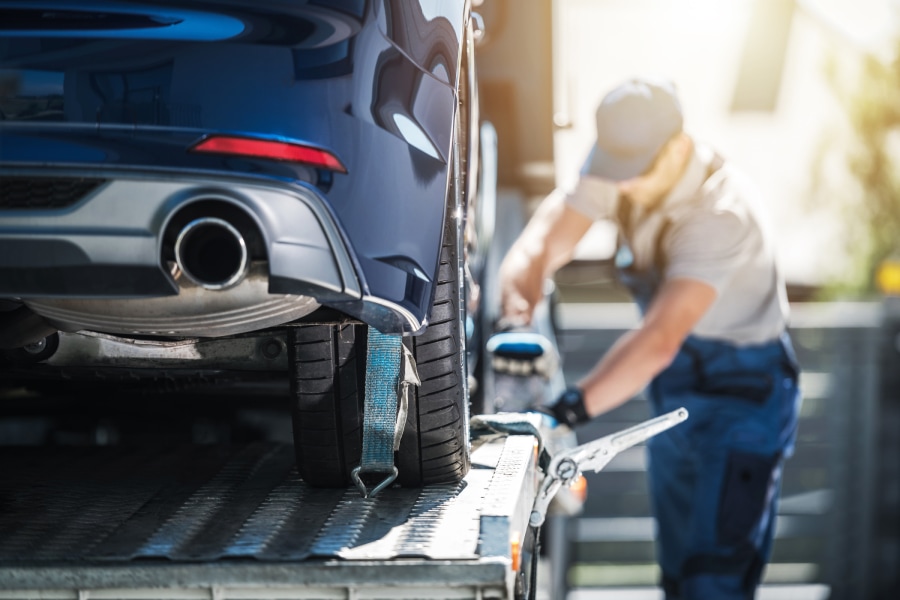In the world of business, continuity and efficiency are key. When your fleet of vehicles is the backbone of your operations, any unexpected breakdown can lead to costly delays. This is where professional Tyler towing services come into play, acting as an essential lifeline to maintain operational momentum.
Benefits for Business Operations
- Minimized Downtime: Every minute counts. Professional towing ensures that any vehicle setback is addressed swiftly, reducing the impact on your bottom line.
- Reliable Assistance: With experienced operators handling your vehicles, you can focus on other critical aspects of your business without worrying about fleet issues.
Why Choose commercial towing in Tyler TX?
- Expertise in Diverse Fleet Needs: Whether dealing with light-duty vans or heavy-duty trucks, professional towing services are equipped to handle diverse vehicle types confidently and safely.
- State-of-the-Art Equipment: Advanced tools and technology ensure efficient and secure vehicle recovery, aligning with industry standards to prevent further damage.
- 24/7 Availability: Emergencies don’t clock out after hours; neither do professional towing services. Their round-the-clock availability means help is always just a call away.
By integrating professional towing into your business strategy, you not only safeguard against unforeseen interruptions but also affirm your commitment to maintaining seamless operations no matter what challenges arise.
-
-
Business Operations and the Need for Quick Towing Response
Running a business involves numerous logistics, and when it comes to fleet management, smooth operations are critical. A delay caused by vehicle breakdowns can disrupt your schedule, lead to missed opportunities, and potentially harm your reputation.
Quick towing response is not just a convenience; it’s a necessity to keep your business on track.
The Cost of Downtime for Businesses
Downtime can have significant financial implications, especially when it interrupts the flow of goods or services:
- Lost Revenue: Every minute a vehicle is out of commission could mean lost sales or delayed deliveries.
- Customer Dissatisfaction: Delays can lead to frustrated clients or customers who may choose competitors in future dealings.
- Operational Disruptions: Unplanned downtime can throw off scheduling, leading to overtime costs or rushed jobs that compromise quality.
According to industry reports, unplanned downtime can cost businesses up to 20% of their productivity annually. This underscores the importance of having rapid, reliable towing services as part of your operational strategy.
Towing Services as a Component of Business Continuity Planning
Business continuity planning is an essential strategy that ensures your company can withstand and recover from unexpected disruptions. Integrating towing services into this plan is a proactive measure that safeguards against the unpredictable nature of vehicle-related interruptions.
Why Include Towing in Business Continuity?
- Unforeseen Vehicle Failures: Mechanical issues can occur without warning. Having a towing service on standby ensures quick resolution, minimizing downtime.
- Accident Response: In the event of an accident, professional towing services can swiftly manage the situation, allowing your team to focus on other critical areas of business recovery.
- Geographical Challenges: For businesses operating across wide and varied regions, reliable towing services are vital for addressing vehicle issues that arise away from your primary location.
Incorporating Towing Services into Your Emergency Response Strategy
Incorporating towing services into your emergency response strategy is a critical step in bolstering your business’s readiness for unexpected vehicular issues. This approach not only reinforces your operational efficiency but also ensures the safety and security of your assets and personnel.
Key Considerations:
- Identify Reliable Providers: Begin by identifying towing companies with a proven track record in handling commercial vehicles. Look for providers with expertise in dealing with the specific types of vehicles within your fleet.
- Response Time Commitment: Ensure that the towing service offers a rapid response time that aligns with your operational needs. Quick intervention can significantly reduce downtime and mitigate potential financial losses.
- Comprehensive Coverage: Consider the geographical areas where your fleet operates. Opt for a towing service that provides comprehensive coverage, ensuring assistance is available regardless of location.
Expertise and Experience in Handling Commercial Vehicles
When choosing a towing service for your business fleet, expertise and experience are crucial factors. Not all towing companies possess the necessary skills to manage commercial vehicles effectively. Here’s what you should consider:
- Specialized Knowledge: Ensure that the towing service has a deep understanding of the mechanics and structure of commercial vehicles. This includes recognizing the specific requirements for different types of trucks, vans, or specialty vehicles used within your fleet.
- Trained Personnel: Opt for a company whose staff undergo regular training to stay updated on the latest techniques and safety protocols in towing commercial vehicles. This ensures they are well-prepared to handle any situation that arises.
- State-of-the-Art Equipment: Look for providers equipped with modern tools designed for heavy-duty towing. This includes flatbed trucks capable of accommodating larger vehicles without causing damage.
- Proven Track Record: Seek out companies with a history of successfully managing similar fleets to yours. Testimonials or case studies can offer insight into their capability and reliability.
- Accreditation and Licenses: Verify that the towing company holds all necessary licenses and certifications, confirming their adherence to industry standards and regulations.
Specialized Services for Different Types of Business Fleets
When managing a business fleet, it’s crucial to recognize that not all towing services offer the same capabilities. Specialized services cater specifically to the diverse needs of various fleet types, ensuring efficient and safe transportation.
- Commercial Trucks and Trailers: These vehicles often require heavy-duty towing solutions. Opt for services with flatbed tow trucks and high-capacity winches designed to handle the weight and dimensions of large commercial vehicles without causing damage.
- Emergency Vehicles: Time-sensitive operations demand rapid response times. Look for towing providers familiar with the urgency of emergency vehicle recovery, ensuring minimal disruption to critical services.
- Delivery Vans and Light Commercial Vehicles: These fleets benefit from a service that understands the intricacies of urban navigation and can quickly reach vehicles stranded in congested city areas.
- Construction Equipment Hauling: Heavy machinery requires specialized handling. Choose companies equipped with lowboy trailers or other appropriate transport options to manage oversized equipment safely.
- Refrigerated Trucks: These vehicles carry perishable goods, necessitating a quick recovery process to avoid spoilage. Towing services should be aware of how to properly secure and transport these units while maintaining their temperature integrity.
A one-size-fits-all approach doesn’t apply when it comes to business fleet towing. Tailored solutions ensure that each vehicle type is handled with the care and expertise it deserves.
Preventative Strategies to Minimize the Need for Towing
Implementing preventative strategies can significantly reduce the frequency and necessity of towing services for your business fleet. By focusing on regular maintenance and proactive measures, you can keep your vehicles in optimal condition and avoid unexpected breakdowns.
- Routine Maintenance Checks: Schedule consistent maintenance inspections for all vehicles. This includes oil changes, brake inspections, tire rotations, and fluid level checks. Keeping up with these basics can prevent larger problems down the line.
- Driver Training Programs: Equip your drivers with the knowledge to identify early warning signs of mechanical issues. Implementing a comprehensive training program not only enhances safety but also empowers drivers to take prompt action when needed.
- Use of Advanced Diagnostics: Invest in modern diagnostic tools that can monitor vehicle health in real-time. These systems alert you to potential issues before they escalate into major repairs, allowing for timely interventions.
- Regular Tire Inspections: Tires are crucial for vehicle safety and efficiency. Ensure that tires are regularly inspected for proper inflation, tread wear, and damage. Well-maintained tires improve fuel efficiency and reduce the risk of blowouts.
- Battery Health Monitoring: Regularly check battery health, especially in extreme weather conditions. A reliable battery reduces the chances of vehicle immobilization due to power failure.
- Fuel System Maintenance: Keep fuel systems clean and ensure filters are replaced regularly. This helps maintain engine performance and prevents clogs that could lead to breakdowns.
-
Training Employees to Handle Vehicle Emergencies
Training your employees to effectively manage vehicle emergencies is a vital component of fleet management. This process not only enhances safety on the road but also minimizes downtime and reduces costs associated with unexpected breakdowns. Here’s how you can empower your team:
- Comprehensive Emergency Protocols: Develop and distribute clear, step-by-step guides on how to respond to various vehicle emergencies. These should cover scenarios like engine failures, tire blowouts, brake issues, or overheating.
- Hands-On Workshops: Conduct regular workshops where employees can practice emergency procedures in a controlled environment. These sessions help build confidence and ensure that theoretical knowledge is effectively translated into practical skills.
- Use of Emergency Kits: Equip each vehicle with a well-stocked emergency kit, including items such as warning triangles, first-aid supplies, basic tools, and flashlights. Train employees in how to use these tools efficiently during an emergency.
- Communication Protocols: Establish robust communication channels for drivers to report incidents promptly. Make sure drivers know who to contact in case of an emergency and the information they need to provide for swift assistance.
- Regular Assessments and Refreshers: Implement periodic assessments to evaluate employee understanding of emergency procedures. Offer refresher courses regularly to keep their skills sharp and updated with any new protocols or technologies.
Ensuring Seamless Business Operations with Professional Towing Services
When unexpected vehicle troubles arise, they can disrupt your business flow significantly. Dependable towing services play a crucial role in maintaining the continuity of operations. Here’s how they contribute to ensuring smooth processes:
Key Features of Professional Towing Services
- Rapid Response Time: A reliable service offers quick assistance, minimizing downtime and preventing further complications.
- Specialized Equipment Handling: They possess the necessary equipment and expertise to manage various vehicle types, from light-duty trucks to heavy industrial machinery.
- Safety Protocols: Adhering to strict safety measures ensures your assets are protected during transit, reducing the risk of damage.
Benefits for Your Business
- Reduced Operational Delays: By quickly addressing breakdowns or accidents, towing services help keep your schedules on track.
- Cost Efficiency: Preventing prolonged disruptions saves resources that would otherwise be spent on unplanned repairs or replacements.
- Enhanced Employee Productivity: Employees remain focused on their roles, knowing that vehicle issues will be managed efficiently.
Choosing the Right Towing Service
Consider the following when selecting a provider for 24/7 towing service in Tyler:
- Experience and Expertise: Look for companies with a proven track record in handling business-related towing needs.
- Availability: Ensure they offer 24/7 support to cater to emergencies at any time.
- Comprehensive Services: Opt for providers offering a wide range of services, including recovery, roadside assistance, and specialized towing.
A seamless operation is not just about keeping vehicles moving; it’s about ensuring every aspect of your business remains uninterrupted.
FAQs
How can I evaluate if a towing company is suitable for my business needs?
To determine if a towing company aligns with your business requirements, consider the following:
- Reputation and Reviews: Research online reviews and ask for referrals to gauge customer satisfaction.
- Insurance and Licensing: Verify that the company is fully licensed and insured to protect your assets.
- Service Offerings: Ensure the provider offers comprehensive solutions, including roadside assistance, vehicle recovery, and emergency towing.
What is the typical response time I should expect from a professional towing service?
A professional towing service should ideally provide:
- Quick Response Times: Aim for companies that promise arrival within 30-60 minutes in urban areas.
- Consistent Availability: Look for services offering 24/7 support to handle incidents at any hour.
Can towing services handle specialized business vehicles or heavy equipment?
Many towing services have the capability to manage:
- Specialized Equipment: Confirm they have equipment like flatbeds or heavy-duty wreckers tailored for large vehicles.
- Trained Personnel: Ensure their staff are skilled in handling complex machinery and oversized loads.
How does a towing service provider ensure the safety of my company’s assets during transit?
Safety measures typically include:
- Secure Loading Techniques: Use of straps, chains, or hydraulic lifts to stabilize vehicles.
- GPS Tracking: Some providers offer GPS tracking so you can monitor your asset’s location in real-time.
- Insurance Coverage: Check that they provide adequate insurance coverage during transit.
What steps should my business take immediately following a vehicle incident requiring towing?
After an incident, follow these steps:
- Ensure Safety First: Move occupants to a safe location away from traffic if possible.
- Contact Towing Service: Call your pre-selected towing provider promptly to reduce downtime.
- Document the Scene: Take photos and note details of the incident for insurance claims and internal records.
- Inform Stakeholders: Notify relevant parties within your organization about potential delays or impacts on operations.





